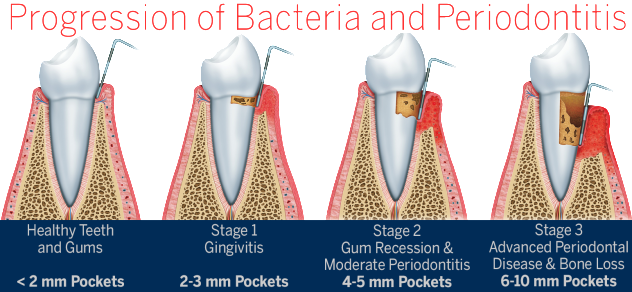Periodontal disease can be devastating. Or it can be managed.
Periodontal disease is a progressive condition that almost always gets worse if left untreated. But periodontal care can help stop disease progression and even reverse it.
Gingivitis
Gingivitis is an early, relatively mild form of gum disease. It affects the gingival, which is the part of the gum nearest the teeth. Symptoms include red, swollen and bleeding gums. The good news: Gingivitis can often be reversed with daily brushing and flossing, and regular cleaning by a dentist or dental hygienist. Think of it as a wake-up call to be extra vigilant about oral hygiene. And a good reason to be proactive and consult a periodontist.

Periodontitis
When gingivitis goes untreated, plaque and tartar build up under the gumline. Periodontitis, which literally means “inflammation of the gums,” is a much more serious form of gum disease.
In periodontitis, the gums recede or pull away from teeth to form “pockets” between the tooth and gum. These pockets form a natural place for bacteria to multiply.
As the pockets become deeper, bacterial toxins and your own immune system break down the bone and connective tissue that hold teeth in place. If not treated, this inflammatory process can lead to tooth loss and other serious conditions.
Talk to your dentist or contact our office if you think you might have periodontal disease.
